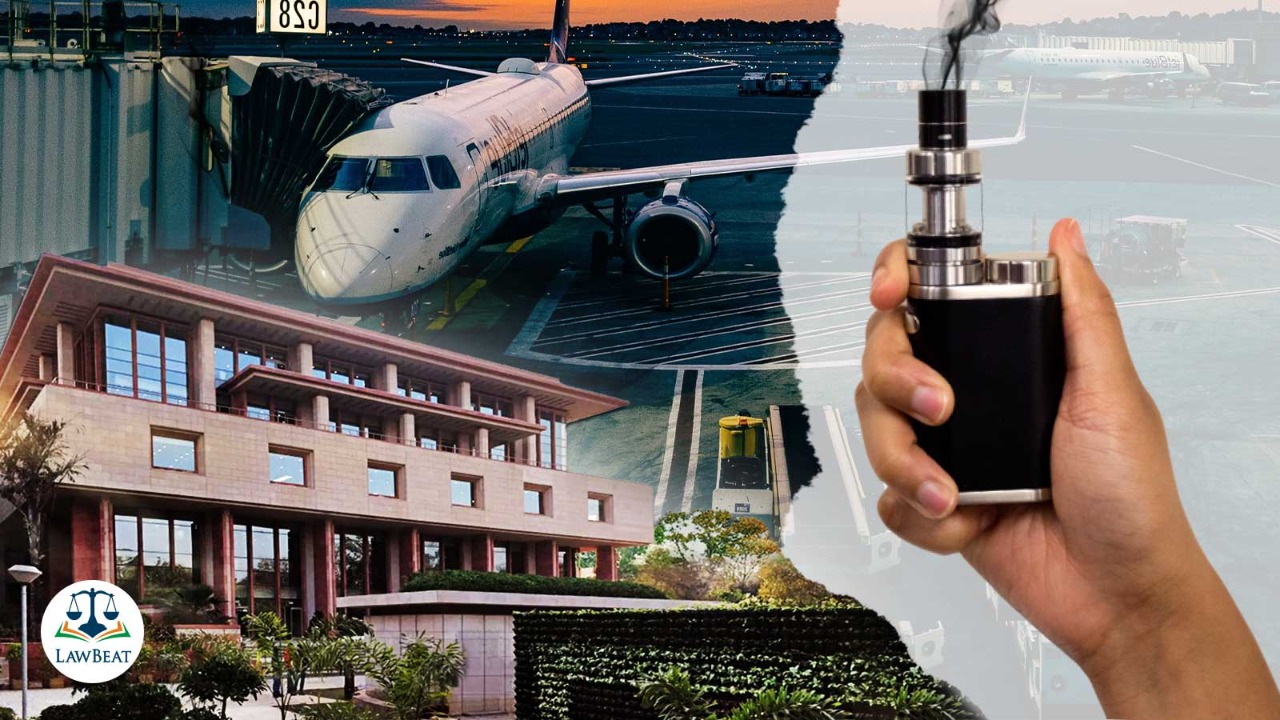Delhi High Court issues notice on plea against order banning E-Cigarettes on Airlines

The plea has challenged the DGCA's order prohibiting transport of E-Cigarettes on flights. It has been alleged that provisions into account, which only forbid the production, manufacturing, import, export, transport, sale, distribution, and advertisement of e-cigarettes, not their personal use, in consideration.
On Wednesday, the Delhi High Court issued notice to the Bureau of Civil Aviation Security (BCAS) in response to a petition contesting the amendment that forbids or restricts the carrying of e-cigarettes on aircraft and at Indian airports.
A person whose electronic cigarettes were seized at the airports in Delhi and Kolkata has referred to the BCAS ruling as "ultra-virus" of the e-cigarette law and asked the court to reverse it.
A bench headed by Justice Yashwant Singh has directed the BCAS to file its response within 4 weeks.
Relying on the Prohibition of Electronic Cigarettes (Production, Manufacture, Import, Export, Sale, Distribution, Storage and Advertisement) Act of 2019, the petition challenges the Directorate General of Civil Aviation's (DGCA) order from January 10, 2020, that forbids or restricts the transport of e-cigarettes at Indian airports.
The petitioner claims that the authority's order was passed without taking the Act's provisions into account, which only forbid the production, manufacturing, import, export, transport, sale, distribution, and advertisement of e-cigarettes, not their personal use, in consideration.
According to the petition, the authority's abuse of power has resulted in the confiscation of vaping devices from passengers flying through the airports in Mumbai, Bangalore, Chennai, Kolkata, Delhi, Goa, Bhavnagar, and other cities.
The petitioner has said that he uses vaping devices and travels frequently. He is a specialist in public health. He has been collaborating with the Elton John AIDS Foundation UK and the Y R Gaitonde Centre for AIDS research and Education at the Johns Hopkins University School of Medicine in Baltimore, USA. The publication of the aforementioned addendum to Section 5 of the Aircraft Act has an impact on the petitioner.
Additionally, it is said that e-cigarettes are battery-powered machines that vaporise a liquid that contains nicotine. Batteries are not a restricted item, thus you can bring your cell phone or laptop with a loose battery on the plane.
Source: ANI
